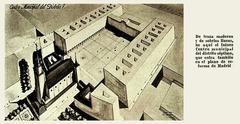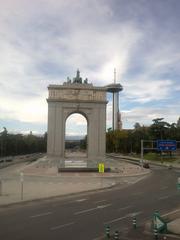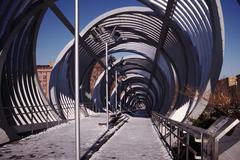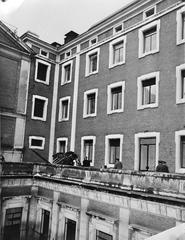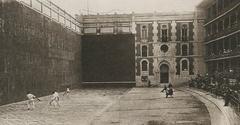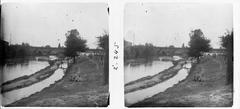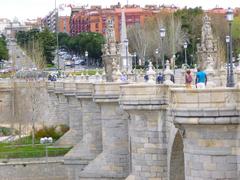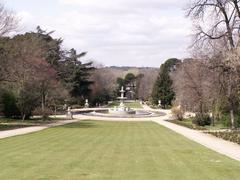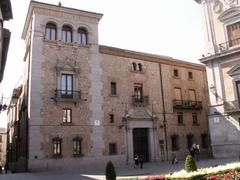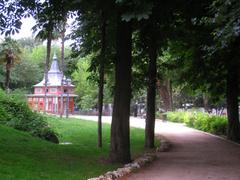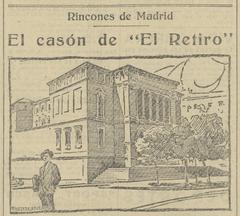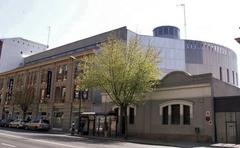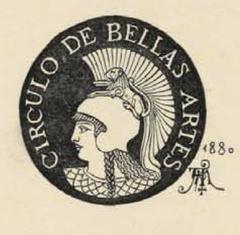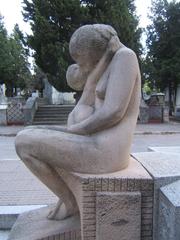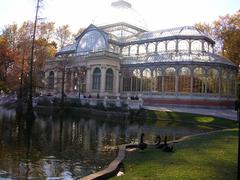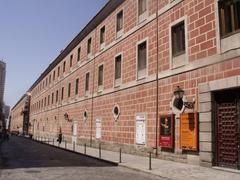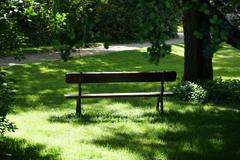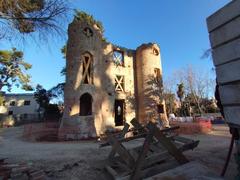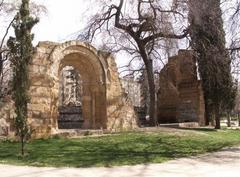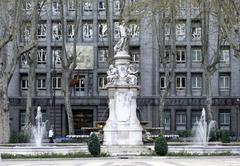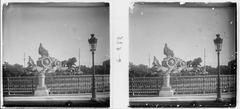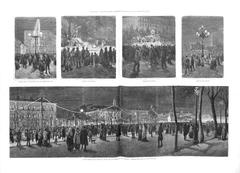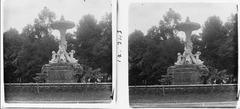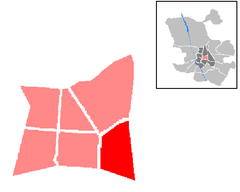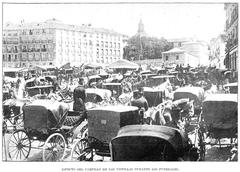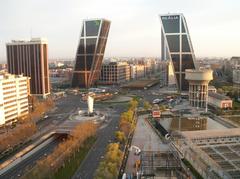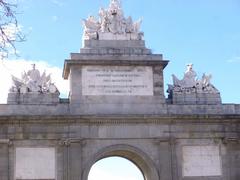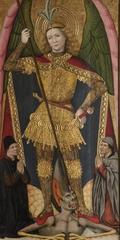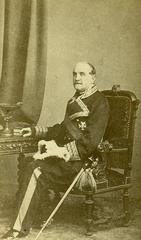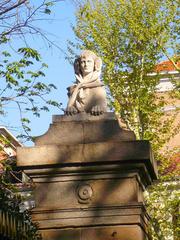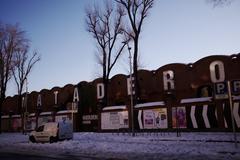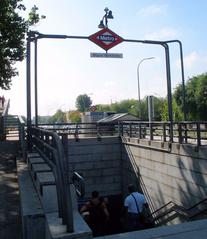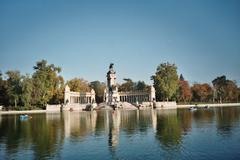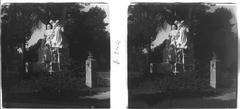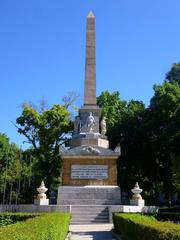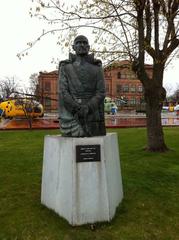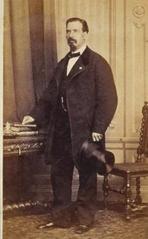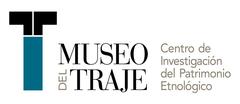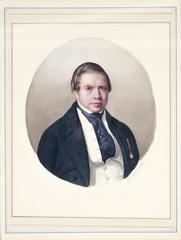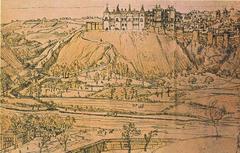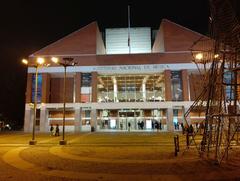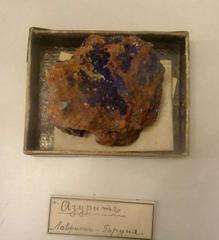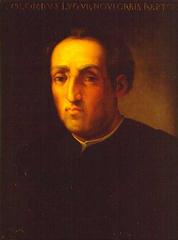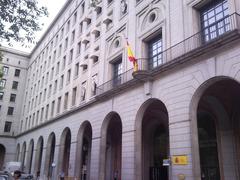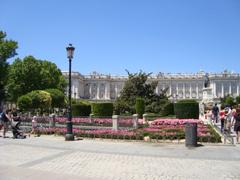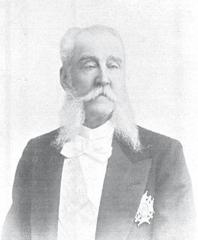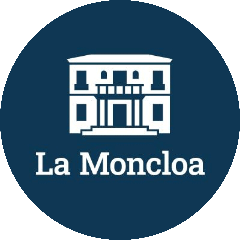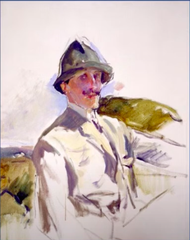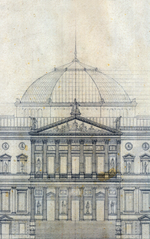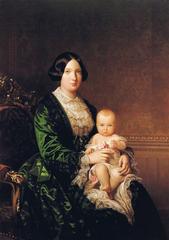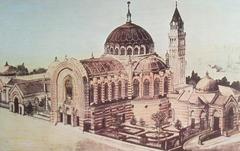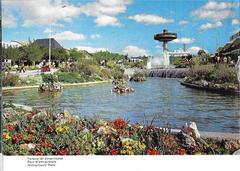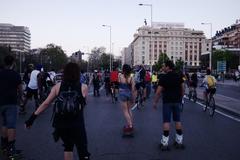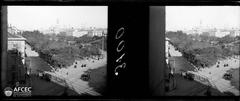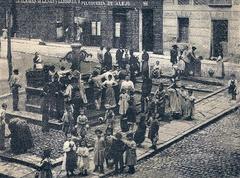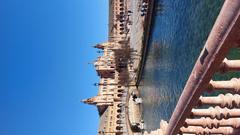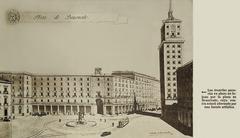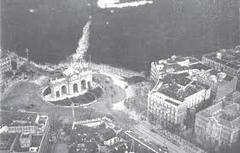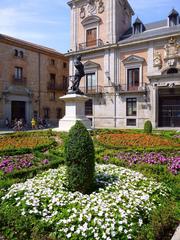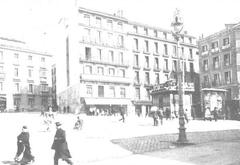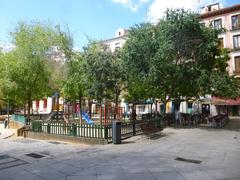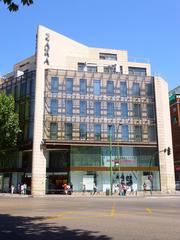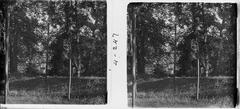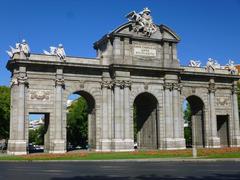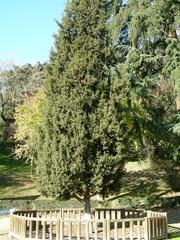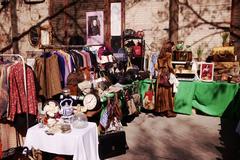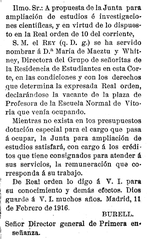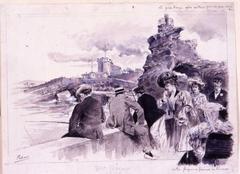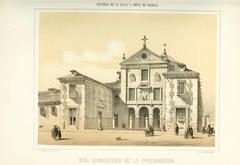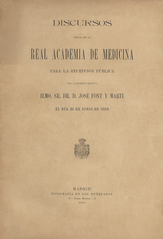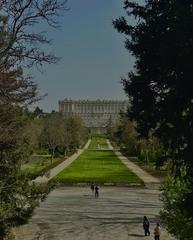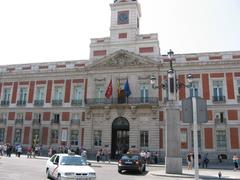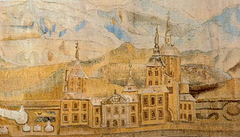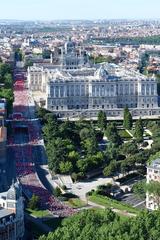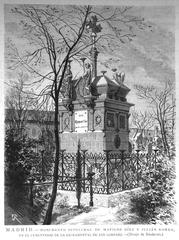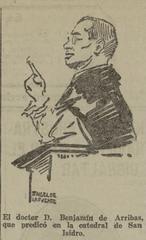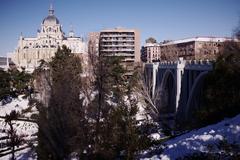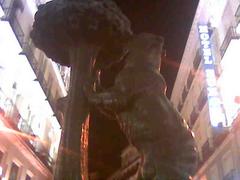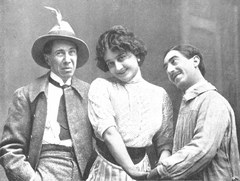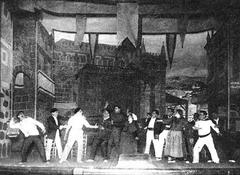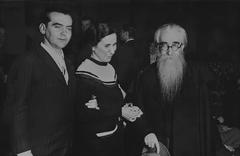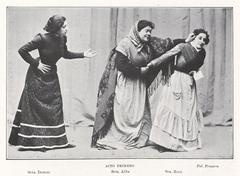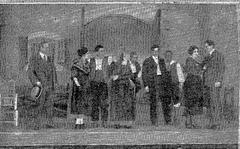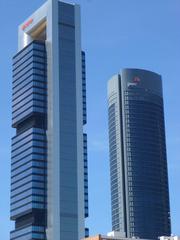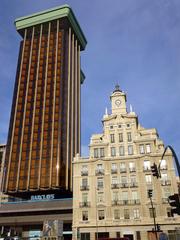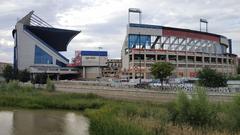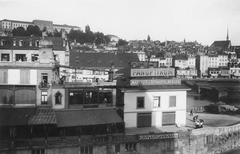
Comprehensive Guide to Comillas Pontifical University Visiting Hours, Tickets, and Attractions in Madrid
Date: 03/07/2025
Introduction
Comillas Pontifical University (Universidad Pontificia Comillas) stands as an esteemed academic institution and a cultural landmark deeply embedded in Spain’s Jesuit educational tradition. Founded in 1890 by Pope Leo XIII and the Marquis of Comillas, its origins lie in the picturesque Cantabrian town of Comillas, celebrated for its Modernist and neo-Gothic architecture. Since relocating its main operations to Madrid in 1969, the university has become a vibrant center for multidisciplinary education, renowned for its programs in law, business, engineering, humanities, and theology. Visitors to Comillas can explore its historic campuses, attend cultural events, and experience the intellectual vitality of one of Madrid’s premier institutions.
This guide presents all essential information for visitors, including up-to-date schedules, ticketing policies, guided tours, accessibility features, and nearby attractions. Whether you wish to explore the iconic Palacio de Sobrellano in Cantabria or the bustling Alberto Aguilera and Cantoblanco campuses in Madrid, this resource will help you make the most of your visit. For current details, consult the Comillas Pontifical University website and the Comillas Tourism Office.
Table of Contents
- Introduction
- Historical Foundations and Evolution
- Academic and Cultural Significance
- Visiting Hours and Ticket Information
- Guided Tours and Special Events
- Architectural Highlights
- Accessibility and Amenities
- Nearby Attractions and Travel Tips
- Photographic Spots
- Libraries and Study Spaces
- Cultural and Student Services
- Visitor FAQ
- Planning Your Visit
- References
Historical Foundations and Evolution
Origins and Jesuit Heritage
Comillas Pontifical University was founded in 1890 in Cantabria, initially as a seminary at the request of the Marquis of Comillas and Pope Leo XIII. Entrusted to the Society of Jesus (Jesuits), the institution has always emphasized academic excellence, ethical leadership, and social responsibility, hallmarks of the Jesuit educational tradition. Its relocation to Madrid in 1969 marked its transformation into a multidisciplinary urban university (Comillas Official Website).
Expansion and Modernization
In Madrid, the university expanded to include several faculties and schools:
- ICAI School of Engineering
- ICADE Faculty of Law and Business
- Faculty of Humanities and Social Sciences
- Faculty of Theology
- San Juan de Dios School of Nursing and Physical Therapy
Serving over 12,000 students annually—including more than 3,000 international students—Comillas has developed into a diverse academic community (Comillas Fact Sheet).
Academic and Cultural Significance
Reputation and Rankings
Comillas is consistently ranked among Spain’s top private universities, especially noted for its law, business, engineering, and social science programs. The ICADE and ICAI schools are recognized for their rigorous curricula and industry connections. The university also participates in international programs such as Erasmus+ (Erasmus Code: E MADRID02) and offers a range of global exchange opportunities (Comillas International Relations).
Innovative Programs and Research
Comillas offers dual degrees, specialized master’s programs (e.g., Cybersecurity, Sustainable Gastronomy), and joint international degrees. Its research strengths include fields such as energy, social innovation, and sustainability. The Madrid Culinary Campus (MACC) showcases the university’s commitment to sustainable gastronomy (Madrid Culinary Campus).
Campus Life and Student Experience
Academic activities typically run from 8:00 AM to 2:30 PM, with some afternoon sessions. Facilities are generally accessible from 8:00 AM to 10:00 PM, and the main library is open until 9:45 PM (with extended hours during exams). Cultural activities are scheduled regularly, especially on Wednesdays (International Student Guide).
Visiting Hours and Ticket Information
Main Campus (Madrid)
-
Alberto Aguilera Campus:
Open Monday to Friday, 8:00 AM–10:00 PM.
General campus access is free.
No ticket is required for entry.
Guided tours and access to select spaces may require advance arrangement via visitor services. -
Cantoblanco Campus:
Open Monday to Friday, 8:00 AM–8:00 PM.
Focuses on humanities and social sciences in a contemporary setting.
Historic Comillas Campus (Cantabria)
- Open daily, typically from 10:00 AM–6:00 PM (seasonal variations apply).
- Tickets required for entry (€8 for adults; discounts available for students, seniors, groups, and families).
- Combined tickets for local attractions may be available.
- It is recommended to book tickets in advance online, especially during peak periods (Comillas Tourism Office).
Guided Tours and Special Events
Guided tours are highly recommended at both the Madrid and Cantabria campuses. Tours typically last 60–90 minutes and are offered in Spanish and English. They provide insights into the university’s history, architecture, and artistic treasures.
Special events, such as exhibitions, concerts, and cultural festivals, are hosted throughout the year. Check the university’s official website or the local tourism office for event calendars and booking information.
Architectural Highlights
Main Building: Neo-Gothic and Neo-Mudejar Styles
Designed by Joan Martorell, the original campus in Cantabria features a blend of neo-Gothic and neo-Mudejar architecture, with intricate brickwork, colorful ceramic tiles, and carved stone. The main entrance is adorned with Jesuit iconography and the university shield, symbolizing its papal foundation (Comillas.es).
Modernist Enhancements
Additions by architect Lluís Doménech i Montaner in 1889 include an auditorium, church, and a grand staircase, showcasing Modernist decorative elements—coffered ceilings, bronze doors, decorative tiles, and artwork by Eduardo Llorens, Juan Llimona, and José M. Tamborín.
Cantoblanco Campus: Contemporary Design
The Cantoblanco campus in Madrid is characterized by modern, sustainable architecture, emphasizing open spaces, collaborative learning environments, and green areas.
Accessibility and Amenities
The main Madrid campus and the Cantabria site offer accessibility features, including ramps and elevators, though the historic nature of the buildings may limit access in some areas. Visitors with reduced mobility are encouraged to contact the university in advance for assistance.
Amenities across campuses include restrooms, cafés, souvenir shops, and free Wi-Fi in designated areas. On-campus accommodation is not provided, but visitor services can recommend nearby lodging (Comillas.edu).
Nearby Attractions and Travel Tips
Cantabria (Historic Campus)
- Gaudí’s El Capricho: Modernist villa nearby.
- Sobrellano Basilica: Neo-Gothic church adjacent to the university.
- Palacio de Sobrellano: Neo-Gothic palace with landscaped gardens.
Wear comfortable walking shoes for cobbled streets and hilly terrain. Public buses from Santander and other towns provide access; parking is available near the site.
Madrid (Main Campus)
- Royal Palace
- Plaza Mayor
- El Retiro Park
- Prado Museum
The Alberto Aguilera campus is in the Chamberí district, easily reached by Madrid’s metro, buses, and commuter rail.
Photographic Spots
- Cantabria Campus: Façades with intricate brickwork and spires, especially striking in morning light. The chapel’s stained-glass windows are ideal for interior shots, while the elevated site offers panoramic views of the Cantabrian Sea.
- Madrid Campus: Historic and modern architecture, verdant courtyards, and views of the cityscape.
Libraries and Study Spaces
Comillas offers extensive library resources with bibliographical and digital materials. Quiet study zones are open to students and visiting scholars (Comillas Fact Sheet).
Cultural and Student Services
Visitors can enjoy art exhibitions, music performances, and sports facilities. Psychological and pastoral support services reflect the university’s holistic approach to wellbeing (Comillas Welcome Week).
Frequently Asked Questions (FAQ)
Q: What are the visiting hours for Comillas Pontifical University campuses?
A: The Alberto Aguilera Campus is open Monday to Friday from 8:00 AM to 10:00 PM; Cantoblanco Campus from 8:00 AM to 8:00 PM. The historic Cantabria campus is generally open daily from 10:00 AM to 6:00 PM but check local sources for seasonal updates.
Q: Are tickets required?
A: General access to Madrid campuses is free. The Cantabria campus requires tickets for entry and guided tours.
Q: Are guided tours available?
A: Yes, guided tours can be booked in advance through visitor services.
Q: Are the campuses accessible for people with disabilities?
A: Yes, with some limitations in historic areas; contact the university for specific accommodations.
Q: Can I take photographs?
A: Photography is allowed for personal use, but restrictions apply in certain areas.
Q: What nearby sites can I visit?
A: In Cantabria: Gaudí’s El Capricho, Sobrellano Basilica, Palacio de Sobrellano. In Madrid: Royal Palace, Prado Museum, El Retiro Park.
Planning Your Visit
- Book in Advance: Reserve tickets and guided tours online, especially during peak seasons.
- Check Accessibility: Contact visitor services for assistance if needed.
- Use Public Transport: Both campuses are easily reached via public transportation.
- Stay Informed: Download the Audiala app for real-time updates and audio guides.
- Explore Local Attractions: Enhance your visit by exploring nearby museums, parks, and cultural sites.
References and Official Links
- Comillas Pontifical University Official Website
- Comillas Tourism Office
- Comillas Fact Sheet
- Comillas International Relations
- Madrid Culinary Campus
- Comillas Welcome Week
- International Student Guide
- Comillas.es – The Pontifical University
Whether you are captivated by history, architecture, or academic life, Comillas Pontifical University offers a unique experience at the intersection of tradition and innovation. Plan ahead for a rewarding visit, and enjoy exploring one of Spain’s most remarkable educational and cultural institutions.



